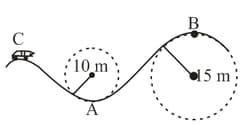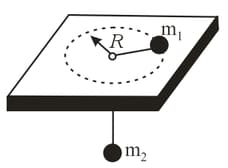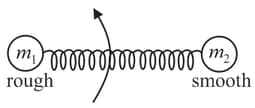B M Sharma Solutions for Chapter: Circular Motion, Exercise 36: CONCEPT APPLICATION EXERCISE 9.2
B M Sharma Physics Solutions for Exercise - B M Sharma Solutions for Chapter: Circular Motion, Exercise 36: CONCEPT APPLICATION EXERCISE 9.2
Attempt the practice questions on Chapter 9: Circular Motion, Exercise 36: CONCEPT APPLICATION EXERCISE 9.2 with hints and solutions to strengthen your understanding. PHYSICS For Joint Entrance Examination JEE (Advanced) Mechanics I solutions are prepared by Experienced Embibe Experts.
Questions from B M Sharma Solutions for Chapter: Circular Motion, Exercise 36: CONCEPT APPLICATION EXERCISE 9.2 with Hints & Solutions
A roller-coaster car has a mass of when fully loaded with passengers.

(a) If the vehicle has a speed of at point , what is the force exerted by the track on the car at this point?
(b) What is the maximum speed the vehicle can have at point and still remain on the track?
A woman is on a large vertical swing of radius . The swing rotates with constant speed.
(a) At what speed would she feel weightless at the top?
(b) At this speed, what is her apparent weight at the bottom?
An air puck of mass is tied to a string and allowed to revolve in a circle of radius on a frictionless horizontal table. The other end of the string passes through a small hole in the centre of the table, and a load of mass is tied to the string.
The suspended load remains in equilibrium while the puck on the tabletop revolves
(a) Find the tension in the string.
(b) Find the radial force acting on the puck.
(c) Find the speed of the puck.
(d) Qualitatively describe what will happen in the motion of the puck if the value of is somewhat increased by placing an additional load on it.
(e) Qualitatively describe what will happen in the motion of the puck if the value of is instead decreased by removing a part from the hanging load.
A ceiling fan has a diameter (of the circle through the outer edges of the three blades) of and at full speed. Consider a particle of mass sticking at the outer end of a blade.
(a) How much force does it experience when the fan runs at full speed?
(b) Who exerts this force on the particle?
(c) How much force does the particle exert on the blade along its surface?
A block of mass is kept on a horizontal ruler. The friction coefficient between the ruler and the block is . The ruler is fixed at one end and the block is at a distance from the fixed end. The ruler is rotated about the fixed end in the horizontal plane through the fixed end.
(a) What can be the maximum angular speed for which the block does not slip?
(b) If the angular speed of the ruler is uniformly increased from zero at an angular acceleration , at what angular speed will the block slip?
A circular table with the smooth horizontal surface is rotating at an angular speed about its axis. A groove is made on the surface along a radius, and a small particle is gently placed inside the groove at a distance from the center. Find the speed of the particle with respect to the table as its distance from the center becomes .
There are two blocks of masses and is placed on on a table which is rotating with an angular velocity about the vertical axis. The coefficient of friction between the blocks is and between and table is . If the blocks are placed at a distance from the axis of rotation for relative sliding between the surfaces in contact, find the,
(a) frictional force at the contacting surface
(b) maximum angular speed .

A block of mass connected with another block of mass by a light spring of natural length and stiffness is kept stationary on a rough horizontal surface. The coefficient of friction between and surface is and the block is smooth. The block is moved with certain speed so as to execute uniform circular motion around the block in horizontal plane.
Find the (a) maximum angular speed of the block relative to (b) acceleration of in (a).
